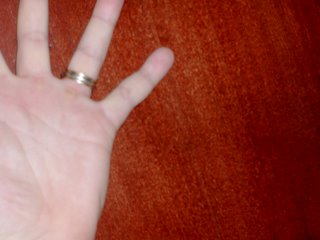With terrorists
meetings Allah on a large scale, it seems appropriate to make a few comparisons.
The Somalis have the right idea about war: "You don't use the minimal amount of force to try to discrourage your enemy from further hostilities. You hit them with everything, and do your best to round them up so that you can kill them all."
They've done a great job of cornering the terrorists, and with the help of out AC-130 gunships, are killing them wholesale. Well done.
Militarily, our last excursion into Mogadishu was a huge victory. During the "Blackhawk Down" incident, we lost 18 guys and killed something like 2000 of the enemy. We also captured the guys we went in to capture.
Politically, it was a disaster. In no small part, thanks to CNN being kind enough to broadcast video of our dead soldiers being dragged through the street.
The blame for that lies squarely on the worst presidential administration in history.
According to the
Senate Armed Services Report, Army Maj. Gen. Thomas Montgomery had requested AC-130 gunships and armor, to support the "Battle of Mogadishu".
On the request for armor, Gen. Montgomery told congressional investigators he needed tanks because of attacks by Somali militias. "I believe that U.S. forces are at risk without it," the Sept. 14, 1993 request stated.
Armored vehicles may have saved lives and reduced casualties during the raid and subsequent rescue, the report concluded. Sen. Carl Levin, Michigan Democrat, is the other co-author.
The report is based on a two-year study of the firefight in Mogadishu Oct. 3, 1993, and tells how top administration officials, including National Security Adviser Anthony Lake and Secretary of Defense Les Aspin, allowed the United Nations to influence deployment of U.S. forces, with disastrous results.
In doing so, U.S. interest was subordinated to "
the Clinton administration's desire to see this U.N. operation succeed," Mr. Warner said.
The report says Gen. Colin Powell, was unable to get Mr. Aspin to approve the military's request for tanks and armored vehicles.
"Aspin was looking at the broader implication of this decision and wasn't willing to approve it just because the commander wanted it," Gen. Powell said.
Mr. Wisner told investigators
he misunderstood the purpose for the armor. He also said "
there was no need to increase the violence nor increase the aggressiveness" of the U.S. special forces.Retired Gen. Colin Powell said he pressed President Clinton's top aides a week before the fatal 1993 raid in Somalia either to beef up U.S. forces or change his policy, according to a Senate report.
"I aggressively pushed Secretary (of Defense Les) Aspin for such a review and on Saturday, September 25th, when we had a meeting at the White House on Bosnia, I said at the end of the meeting that we need to do something about Somalia- either reinforce our forces or change our policy."
The report quoted special forces commanders as saying
the AC-130s frightened Somali militia so they would have had psychological impact in the October raid.But it said Powell and another senior commander rejected the request, saying as few new U.S. forces as possible should be sent to Somalia and the Spectres were not useful because they should not fire in Mogodishu itself.
It quoted Powell as saying he did not remember the AC-130 decision but that when Spectres had been in Somalia earlier "
they wrecked a few buildings and it wasn't the greatest imagery on CNN."
"It is difficult to understand the decision to omit the AC-130 gunships from the Joint Task Force Ranger force package," concludes the report written by Sens. John Warner, R-Va., and Carl Levin, D-Mich.
The report quotes Gen. Wayne Downing, head of the United States Special Forces, as saying "we were under incredible pressure" from the Joint Chiefs of Staff.
"I advised that I would like to have the AC-130s," he said. "Gen. Powell advised that we needed to keep the numbers down."
***************************************************
This is the difference in how the US fights too many of its wars.




